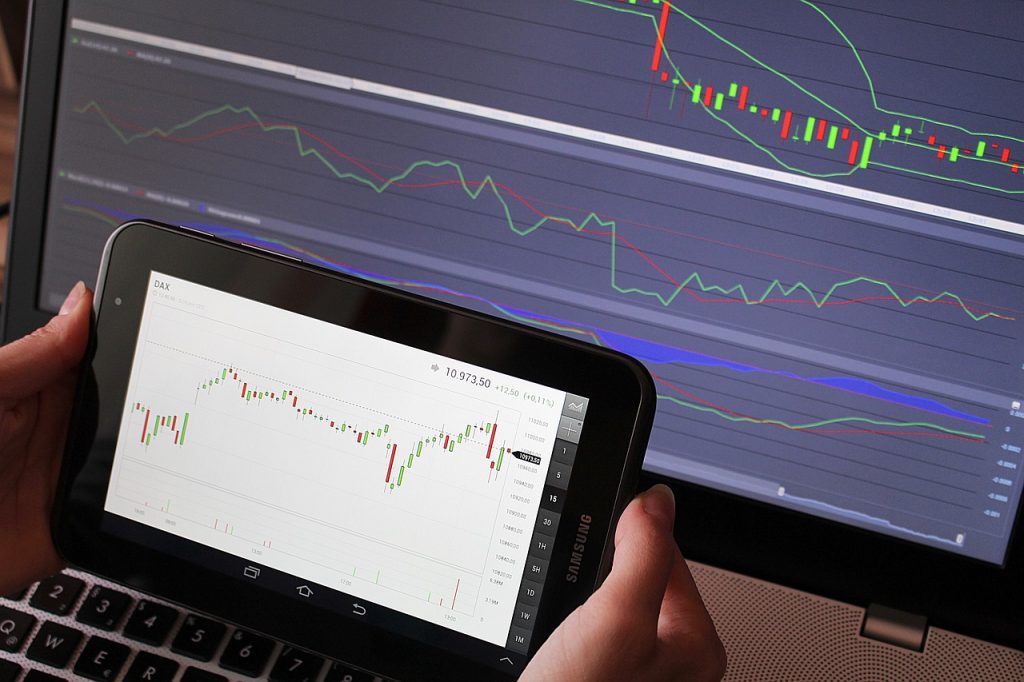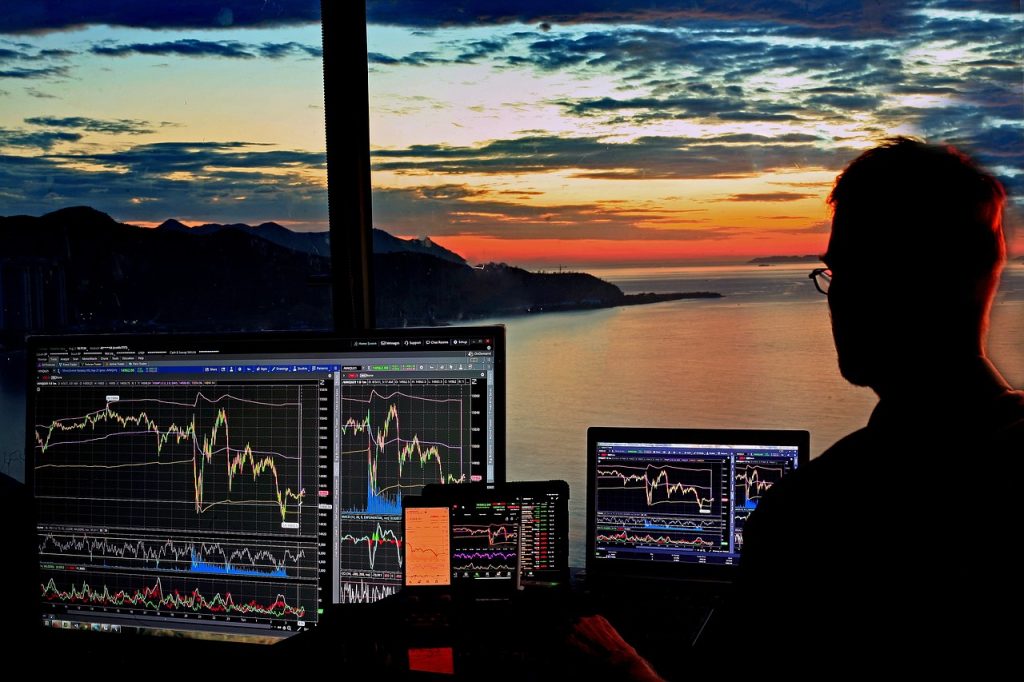So you’ve heard about forex trading and you’re wondering, can it actually make you money? Well, the answer is a resounding yes! Forex trading, also known as FX trading or trading foreign exchange, can be a lucrative venture if approached with the right knowledge and strategies. In this article, we will explore the world of forex trading and discuss how it can potentially help you grow your wealth. Get ready to discover the exciting possibilities that await in the forex market!

Understanding Forex Trading
What is Forex Trading?
Forex trading, also known as foreign exchange trading, is the process of buying and selling currencies in order to make a profit. The forex market is the largest and most liquid financial market in the world, with over $5 trillion traded daily. Unlike other financial markets, such as the stock market, forex trading does not have a centralized exchange. Instead, it operates through a network of banks, financial institutions, and individual traders.
How Does Forex Trading Work?
Forex trading involves trading currency pairs, such as the EUR/USD or GBP/JPY. When you trade forex, you are essentially betting on the value of one currency against another. For example, if you believe that the euro will strengthen against the US dollar, you would buy the EUR/USD currency pair. If the exchange rate goes up, you can sell the currency pair at a higher price and make a profit.
Forex trading is conducted through an online platform provided by a broker. These platforms allow you to monitor real-time exchange rates, place trades, and manage your account. In order to trade forex, you need to open a trading account with a reputable broker and deposit funds into your account. You can then start trading by buying or selling currency pairs based on your analysis and market predictions.
Key Concepts in Forex Trading
There are several key concepts that are important to understand in forex trading. One of the most important concepts is leverage. Leverage allows you to control a large amount of money with a small investment. For example, if your broker offers you a leverage of 100:1, it means that for every $1 you invest, you can trade with $100. While leverage can amplify your profits, it can also magnify your losses, so it is important to use it wisely.
Another key concept in forex trading is margin. Margin refers to the amount of money you need to deposit with your broker in order to open a position. Margin requirements vary depending on the broker and the currency pair you are trading. It is important to understand the margin requirements of your broker and manage your margin properly to avoid margin calls and potential losses.
Risk management is also a crucial concept in forex trading. This involves using various strategies and tools to protect your capital and minimize losses. Stop loss orders and take profit orders are commonly used risk management tools. A stop loss order allows you to set a specific price at which your trade will be automatically closed if the market moves against you. A take profit order, on the other hand, allows you to set a specific price at which your trade will be automatically closed if the market moves in your favor.
Forex Trading Strategies
Different Types of Forex Trading Strategies
There are various types of forex trading strategies that traders can employ. These strategies can be broadly classified into two categories: technical analysis and fundamental analysis.
Technical Analysis
Technical analysis involves analyzing historical price data and utilizing technical indicators to identify potential trading opportunities. Traders who use technical analysis believe that historical price patterns and trends can provide insights into future price movements. Technical analysis tools include charts, trend lines, support and resistance levels, moving averages, and oscillators.
Fundamental Analysis
Fundamental analysis involves analyzing economic, political, and social factors that can affect the value of a currency. Traders who use fundamental analysis look at indicators such as economic data, central bank policies, geopolitical events, and market sentiment. By analyzing these factors, traders can make informed decisions about the direction of a currency.
Risk Management
Risk management is an integral part of any successful forex trading strategy. This involves identifying and managing potential risks, such as market volatility and unexpected news events. Traders can use various risk management techniques, such as setting stop loss orders, using proper position sizing, and diversifying their portfolio.
Choosing the Right Strategy for You
Choosing the right forex trading strategy depends on various factors, including your trading style, risk tolerance, and available time. Some traders prefer short-term trading strategies, such as day trading or scalping, while others prefer longer-term strategies, such as position trading or swing trading. It is important to choose a strategy that aligns with your goals and fits your personality and trading style.
Getting Started in Forex Trading
Setting Up a Forex Trading Account
To get started in forex trading, you need to set up a forex trading account with a reputable broker. There are many brokers to choose from, so it is important to do your research and select a broker that meets your needs. When setting up an account, you will need to provide certain personal information and complete the necessary documentation. Once your account is set up, you can deposit funds and start trading.
Choosing a Reliable Broker
Choosing a reliable broker is crucial in forex trading. A good broker should be regulated by a reputable financial authority, have a user-friendly trading platform, provide access to a wide range of currency pairs, offer competitive spreads and commissions, and provide reliable customer support. It is also important to consider the broker’s reputation, trading conditions, and the quality of their trading tools and educational resources.
Understanding Trading Platforms
Trading platforms are software applications provided by brokers that allow you to place trades, monitor the market, and manage your account. There are different types of trading platforms available, including web-based platforms, desktop platforms, and mobile platforms. It is important to choose a trading platform that is easy to use, reliable, and provides the features and tools you need for successful trading.
Factors Affecting Forex Market
Global Economic Factors
Global economic factors, such as GDP growth, inflation rates, interest rates, and employment data, can have a significant impact on the forex market. Economic indicators and reports are closely watched by forex traders as they provide insights into the strength and stability of different economies.
Central Bank Policies
Central bank policies, particularly monetary policies, can greatly influence the value of a currency. Central banks use tools such as interest rate changes, quantitative easing, and intervention in the foreign exchange market to manage their economy and stabilize their currency. Traders closely monitor central bank announcements and policy decisions as they can create opportunities for trading.
Political Events
Political events, such as elections, referendums, and geopolitical tensions, can cause volatility in the forex market. Changes in government, political instability, and trade disputes can all impact currency values. Traders need to stay informed about political events and their potential impact on the forex market.
Market Sentiment and Speculation
Market sentiment refers to the overall attitude and feeling of market participants towards a currency. Market sentiment can be driven by various factors, including economic data, political events, and investor confidence. Traders use market sentiment indicators and sentiment analysis to gauge market mood and make trading decisions.

Managing Risks in Forex Trading
Understanding Leverage and Margin
Leverage allows you to trade with borrowed money, amplifying your potential profits. However, leverage also increases your risk as it magnifies losses. It is important to understand how leverage works, manage your leverage wisely, and use proper risk management techniques to protect your capital.
Margin refers to the amount of money you need to deposit with your broker in order to open a position. Margin requirements vary depending on the broker and the currency pair you are trading. It is important to understand the margin requirements of your broker and manage your margin properly to avoid margin calls and potential losses.
Stop Loss and Take Profit Orders
Stop loss and take profit orders are risk management tools that can help you protect your capital and secure profits. A stop loss order allows you to set a specific price at which your trade will be automatically closed if the market moves against you. A take profit order allows you to set a specific price at which your trade will be automatically closed if the market moves in your favor. Using stop loss and take profit orders can help you limit your losses and lock in profits.
Diversification
Diversification is another important risk management technique in forex trading. By diversifying your portfolio and trading multiple currency pairs, you can spread your risk and reduce the impact of a single trade on your overall portfolio. Diversification can help you reduce the potential for catastrophic losses and increase your chances of long-term success.
Managing Emotions and Discipline
Managing your emotions and maintaining discipline are key to successful forex trading. Emotions such as fear and greed can cloud your judgment and lead to impulsive and irrational trading decisions. It is important to have a trading plan, stick to your strategy, and control your emotions. This can be achieved through techniques such as meditation, journaling, and practicing patience.
Realistic Expectations in Forex Trading
Avoiding Get-Rich-Quick Mentality
It is important to have realistic expectations when it comes to forex trading. Many people are attracted to forex trading because of the potential for high profits. However, it is important to understand that forex trading is not a get-rich-quick scheme. It requires time, effort, and continuous learning. It is important to approach forex trading as a long-term investment and focus on consistency and risk management rather than quick profits.
Creating a Forex Trading Plan
Creating a forex trading plan is essential for success in the forex market. A trading plan outlines your trading goals, strategies, risk tolerance, and money management rules. It helps you stay disciplined, stick to your strategy, and make rational decisions based on analysis rather than emotions. A trading plan should be flexible to adapt to changing market conditions, but it should also provide structure and guidance.
Setting Achievable Goals
Setting achievable goals is important in forex trading. It is important to set realistic targets for your trading and avoid setting unrealistic expectations. Goals should be specific, measurable, achievable, relevant, and time-bound (SMART). Setting achievable goals allows you to track your progress, measure your success, and stay motivated.

Psychology and Forex Trading
The Impact of Emotions on Trading
Emotions play a significant role in forex trading. Fear, greed, and overconfidence can cloud your judgment and lead to poor decision-making. Traders need to recognize and manage their emotions in order to make rational and objective trading decisions. Techniques such as maintaining a trading journal, practicing mindfulness, and using positive affirmations can help manage emotions and improve trading performance.
Maintaining Discipline and Patience
Discipline and patience are key traits of successful forex traders. It is important to stick to your trading plan, follow your strategy, and avoid impulsive and emotional trading decisions. Maintaining discipline involves patience, consistency, and the ability to control your emotions. It is important to understand that not every trade will be a winner and to be patient for the right opportunities.
Managing Fears and Greed
Fears and greed are common emotions that can impact trading performance. Fear of losing money can prevent traders from taking valid trading opportunities, while greed can lead to excessive risk-taking and overtrading. It is important to manage fears and greed by using proper risk management techniques, setting realistic goals, and maintaining discipline. It is important to approach trading with a calm and rational mindset.
Choosing the Right Forex Trading Method
Position Trading
Position trading is a long-term trading strategy that involves holding trades for days, weeks, or even months. Position traders focus on larger price movements and trade based on fundamental analysis, economic trends, and long-term market patterns. This strategy requires patience and the ability to withstand short-term market fluctuations.
Day Trading
Day trading is a short-term trading strategy that involves opening and closing trades within a single trading day. Day traders aim to profit from small price movements and take advantage of intraday volatility. Day traders use technical analysis, chart patterns, and short-term indicators to identify trading opportunities. This strategy requires constant monitoring of the market and fast execution.
Swing Trading
Swing trading is a medium-term trading strategy that involves holding trades for a few days to a few weeks. Swing traders aim to profit from short-term price swings within larger market trends. This strategy combines elements of both technical and fundamental analysis and is suitable for traders who want to take advantage of shorter-term market movements without the need for constant monitoring.
Scalping
Scalping is a high-frequency trading strategy that involves opening and closing trades within seconds or minutes. Scalpers aim to profit from small price fluctuations and make numerous trades throughout the day. Scalping requires quick decision-making, fast execution, and a high level of concentration. This strategy is suitable for experienced traders who can handle the stress and have access to low-cost trading platforms.

Common Mistakes to Avoid in Forex Trading
Overtrading
Overtrading is a common mistake made by many forex traders. It involves trading too frequently or trading too many positions at once. Overtrading can lead to poor decision-making, increased transaction costs, and emotional exhaustion. It is important to stick to your trading plan, be selective with your trades, and avoid the temptation to trade excessively.
Failure to Use Stop Loss Orders
Failure to use stop loss orders is another common mistake in forex trading. Stop loss orders are crucial for managing risk and protecting your capital. They allow you to limit your losses and automatically close a trade if the market moves against you. It is important to set appropriate stop loss levels for each trade and adjust them as necessary.
Ignoring Technical Analysis
Ignoring technical analysis is a common mistake made by some traders, particularly those who rely solely on fundamental analysis. Technical analysis provides valuable insights into market trends, price patterns, and support and resistance levels. By ignoring technical analysis, traders may miss out on important trading opportunities and fail to maximize their profits.
Lack of Proper Money Management
Lack of proper money management is a major mistake in forex trading. Money management involves determining the appropriate position size, setting risk-reward ratios, and determining when to enter or exit trades. Without proper money management, traders may expose themselves to excessive risk, experience large losses, and have difficulty recovering.
Continuous Learning and Improvement in Forex Trading
Staying Updated on Market News and Analysis
Staying updated on market news and analysis is essential for success in forex trading. News and analysis provide valuable insights into market trends, economic data, and political events that can impact currency values. Traders need to stay informed by reading news articles, following financial news websites, and subscribing to reputable market analysis publications.
Joining Trading Communities and Forums
Joining trading communities and forums provides an opportunity to learn from experienced traders, share ideas, and gain valuable insights. Trading communities and forums are a great source of support, education, and inspiration. By participating in discussions and interacting with other traders, you can expand your knowledge, improve your skills, and stay motivated.
Analyzing Past Trades and Learning from Mistakes
Analyzing past trades and learning from mistakes is an important part of continuous learning and improvement in forex trading. By reviewing your trading history, you can identify patterns, strengths, and weaknesses in your trading strategy. It is important to analyze both winning and losing trades to understand what worked and what didn’t. This allows you to make adjustments, refine your strategy, and avoid making the same mistakes in the future.
In conclusion, forex trading is a complex but potentially rewarding endeavor. It requires a solid understanding of the market, effective risk management, and continuous learning and improvement. By following sound trading strategies, managing emotions, and staying disciplined, you can increase your chances of success in the forex market. It is important to approach forex trading with realistic expectations and focus on long-term profitability rather than short-term gains. Remember, forex trading is a journey, and with perseverance and dedication, you can achieve your financial goals.


